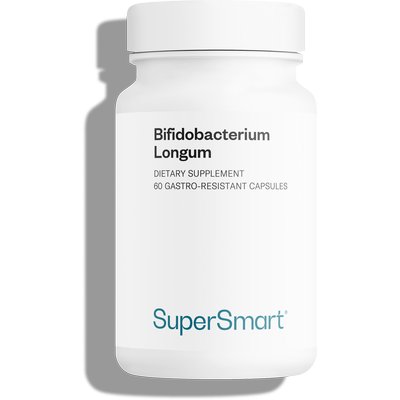20-02-2017
Gut flora: imbalances implicated in Crohn’s disease
 Recent research could improve our understanding of the origins of Crohn’s disease, a rare and highly complex condition characterised by chronic inflammation of the intestines. While hypotheses as to potential causes continue to grow, many grey areas still exist. A recent study reveals that changes in gut flora could be involved in its development, suggesting a possible new direction for treatment. Published in mBio, the on-line journal of the American Society for Microbiology1, the study’s results provide explanation.
Recent research could improve our understanding of the origins of Crohn’s disease, a rare and highly complex condition characterised by chronic inflammation of the intestines. While hypotheses as to potential causes continue to grow, many grey areas still exist. A recent study reveals that changes in gut flora could be involved in its development, suggesting a possible new direction for treatment. Published in mBio, the on-line journal of the American Society for Microbiology1, the study’s results provide explanation.
Analysis of gut flora in Crohn’s patients
In this study, a team of American and French researchers compared the gut flora of different family members. They examined patients with Crohn’s disease and their non-diseased first-degree relatives in a total of nine families, along with a further four healthy families. The study was made possible by the significant progress achieved in characterising gut flora. This gastrointestinal microbiota is comprised of numerous microorganisms but its natural balance can be upset by external aggressors such as pathogens. This is why scientists are interested in both the bacteriome and the mycobiome – the bacteria and fungi present in gut flora.Changes in gut flora observed in Crohn’s disease
On completion of their analysis, the researchers found significant differences between the healthy families and those with a family member suffering from Crohn’s disease. While the mycobiome appeared unchanged, there were several differences in the bacteriome of Crohn’s patients, including in particular a higher level of the bacterial strains Serratia marcescens and Escherichia coli In addition, a much higher presence of the fungus Candida tropicalis was observed in Crohn’s patients compared with their non-diseased close relatives.A new treatment approach for Crohn’s disease?
These preliminary findings suggest that an imbalance in gut flora could be involved in the onset of Crohn’s disease. In addition, the effects of the various microorganisms identified could be responsible for the characteristic symptoms of the disease. While further studies are needed to confirm the link between gut flora and Crohn’s disease, this study emphasises how important this microbiota is to our health and well-being. For this reason, various formulations have been developed to maintain the balance of our gut flora including those based on probiotics. These are living microorganisms, additional intake of which can be beneficial for gut flora balance. You can take advantage of their benefits by supplementing with either a single strain such as Bifidobacterium longum or with a combination of several probiotics such as offered by the powerful formulationProbio Forte™.> Source :
1. G. Hoarau et al. Bacteriome and Mycobiome Interactions Underscore Microbial Dysbiosis in Familial Crohn’s Disease, mBio, 20 September 2016.
Order the nutrients mentioned in this article

Probiotic mix; 8 billion microorganisms per capsule. In gastro-resistant capsules for optimum efficacy
www.supersmart.com
Now in gastro-resistant capsules. New acid-resistant delivery method. One of the most important microbacteria for intestinal health.
www.supersmart.comFurther reading
19-09-2016
The results of clinical research published over the last fifteen years highlight the many beneficial effects of probiotics. They appear to have both preventive and...
Read more14-03-2017
Allergies affect between 30% and 40% of the world’s population. They have multiple causes and take various forms such as food allergies, allergic rhinitis, asthma,...
Read more22-02-2017
Louis XIV famously suffered from severe constipation and his doctors would regularly ask him: ”Comment allez-vous (How are you)?”, when what they actually meant was:...
Read more© 1997-2026 Fondation pour le Libre Choix
All rights reserved
All rights reserved
Free
Thank you for visiting our site. Before you go
REGISTER WITHClub SuperSmart
And take advantage
of exclusive benefits:
of exclusive benefits:
- Free: our weekly science-based newsletter "Nutranews"
- Special offers for club members only

















